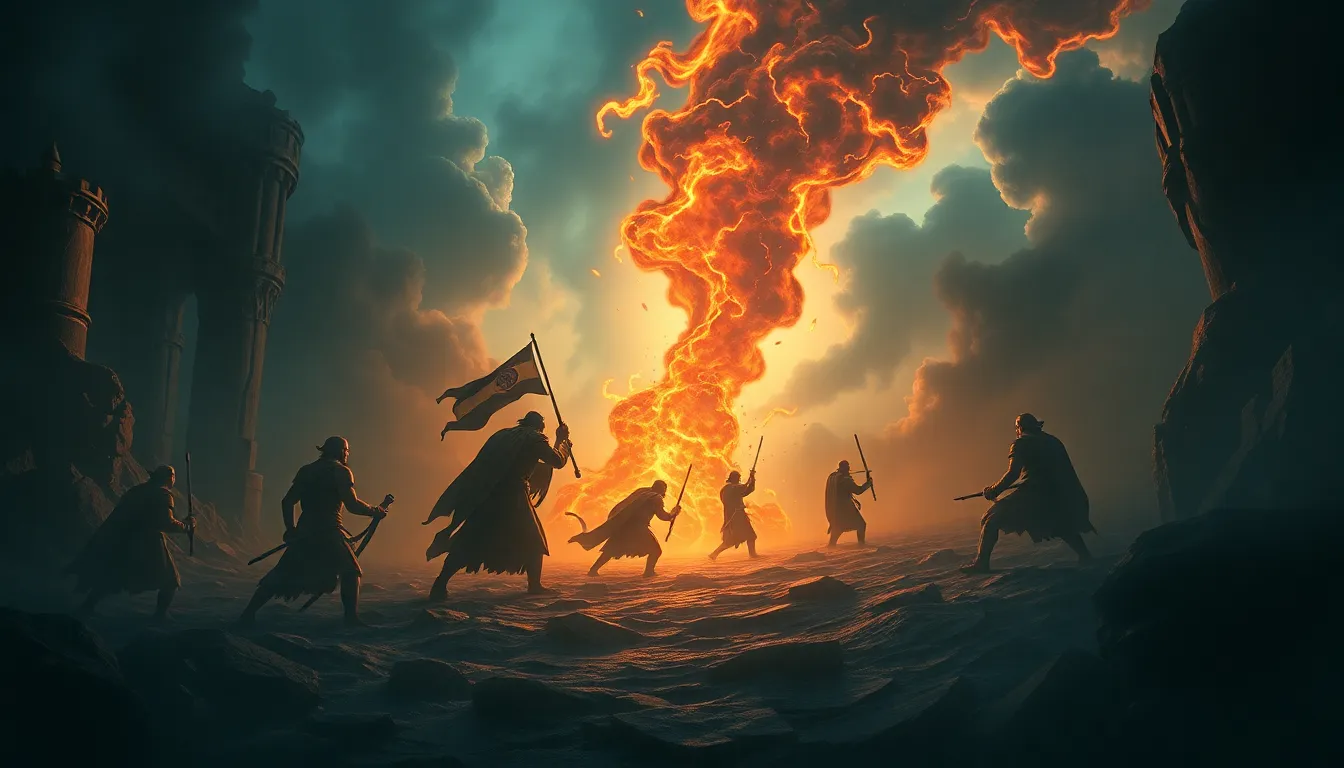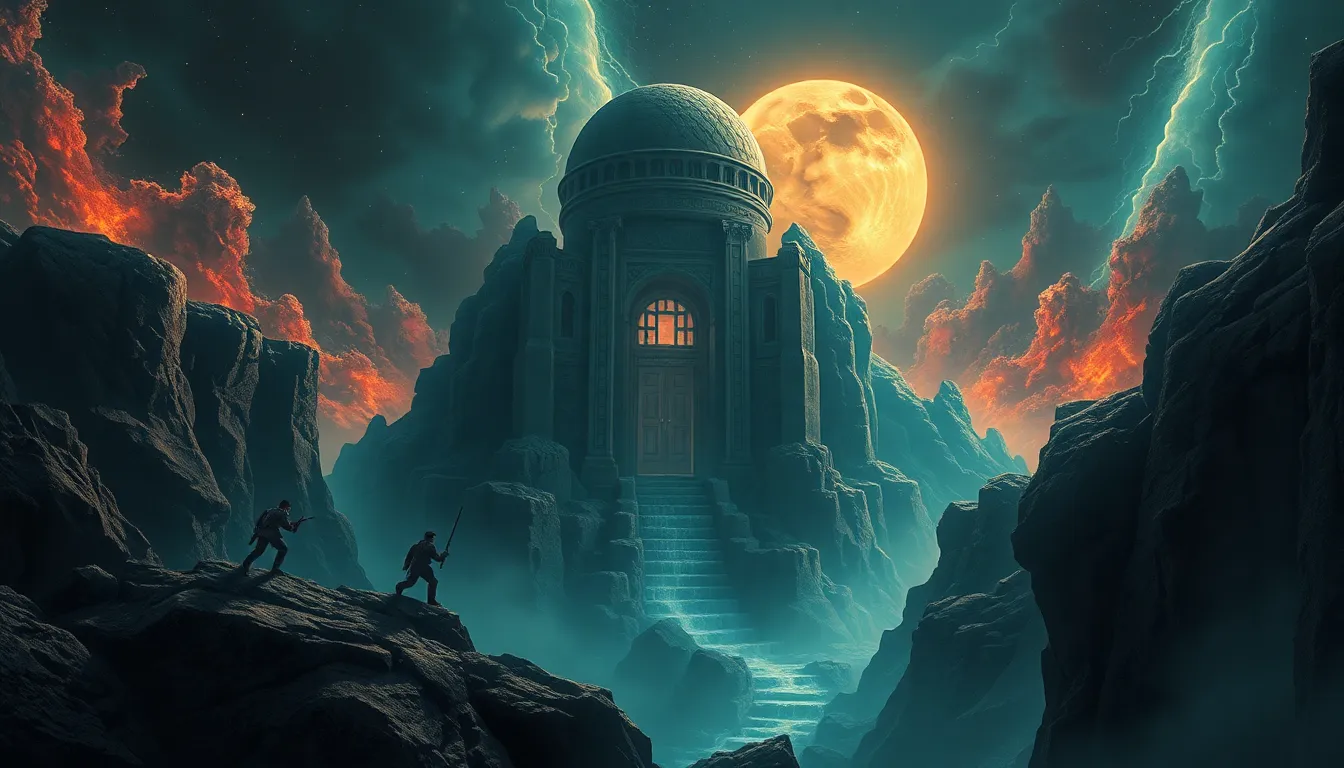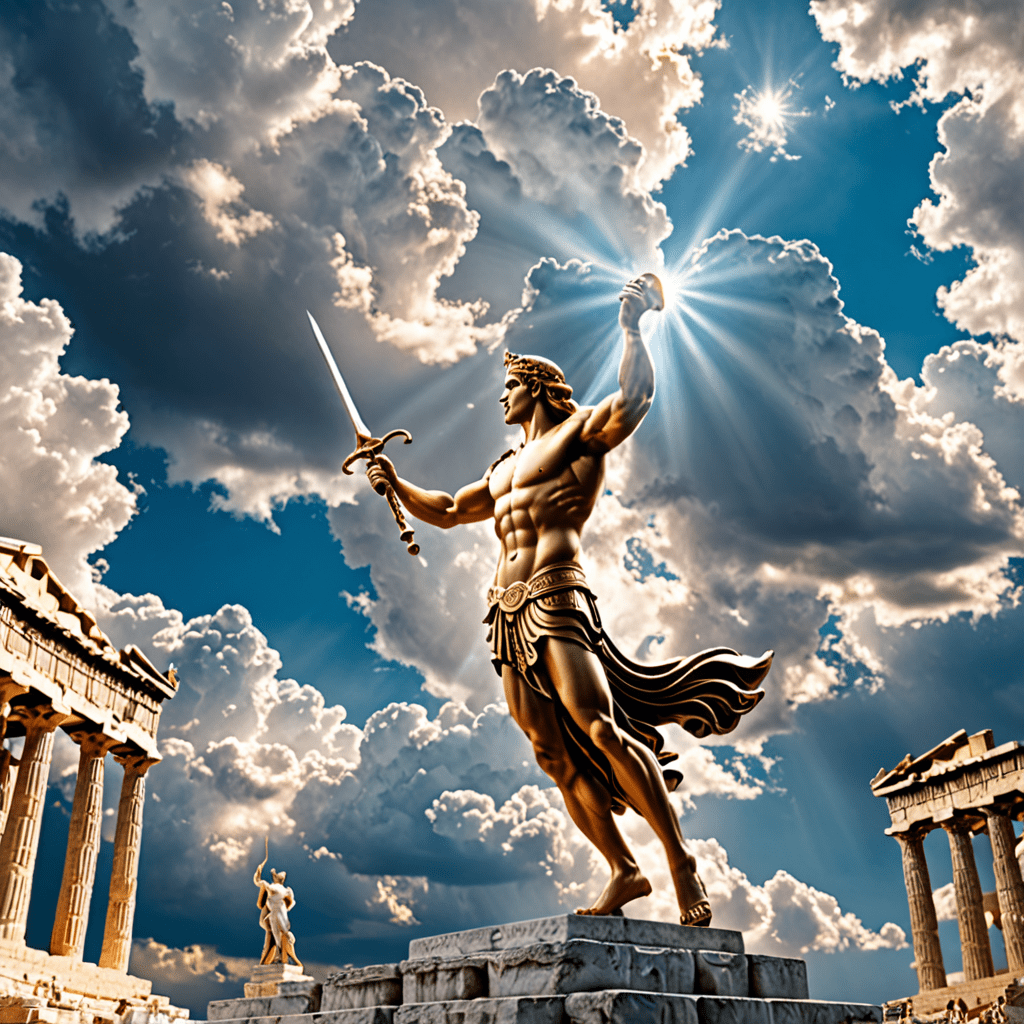The Great Mythical Clash: Epic Battles Explored!
Introduction to Mythical Battles
Mythical battles are grand confrontations found in folklore and mythology, representing not only physical conflicts but also the clash of ideologies, morals, and existential questions. These epic struggles often serve as a narrative device to convey the values and beliefs of a culture, illustrating the eternal fight between good and evil, chaos and order. Such battles hold significant importance as they provide insight into the human condition and the cultural psyche of civilizations throughout history.
The Origins of Mythical Combat
The roots of mythical battles can be traced back to ancient civilizations, where the stories of gods, heroes, and legendary creatures were passed down through generations. These narratives often reflected the societal values, fears, and aspirations of the people. Various mythologies, from the Greeks to the Norse, featured epic confrontations that have shaped cultural identities.
- Greek Mythology: Focuses on heroic figures and their quests.
- Norse Mythology: Explores the concept of fate and the inevitability of Ragnarok.
- Hindu Mythology: Highlights duty (dharma) and righteousness in battle.
Iconic Mythical Battles Across Cultures
Different cultures have produced legendary battles that resonate through time. Below are some of the most iconic mythical confrontations:
Greek Mythology: The Trojan War and the Battle of the Titans
The Trojan War, immortalized in Homer’s Iliad, was a decade-long conflict sparked by the abduction of Helen. It showcased legendary heroes such as Achilles and Hector and explored themes of honor, revenge, and fate. Similarly, the Titanomachy saw the Olympian gods battle the Titans, symbolizing the triumph of order over chaos.
Norse Mythology: Ragnarok and the Death of the Gods
Ragnarok is the prophesied end of the world in Norse mythology, where gods and giants clash in a cataclysmic battle. This epic struggle encapsulates themes of inevitability and the cyclical nature of existence, emphasizing that even the mightiest can fall.
Hindu Mythology: The Kurukshetra War in the Mahabharata
The Kurukshetra War, a central event in the Mahabharata, is a complex narrative of two warring families. It delves into deep philosophical questions about duty, righteousness, and the moral dilemmas faced in battle.
The Heroes and Villains of Mythical Warfare
Mythical battles are often defined by their key figures—heroes and villains—who embody the archetypal roles central to the storyline.
Heroes
- Achilles: The greatest warrior of the Greek forces, known for his strength and tragic fate.
- Beowulf: A legendary hero who battles monsters, representing bravery and honor.
Villains
- Loki: The trickster god in Norse mythology who brings chaos to the gods.
- Ravana: The demon king in Hindu mythology, known for his strength and arrogance.
The archetypal roles of these characters highlight the moral complexities of their actions and the consequences that arise from their choices.
The Weapons and Strategies of Mythical Combat
Legendary weapons play a crucial role in mythical battles, often possessing magical properties that enhance the abilities of their wielders. Here are some noteworthy examples:
- Excalibur: The legendary sword of King Arthur, symbolizing rightful sovereignty.
- Mjölnir: Thor’s hammer, representing power and protection.
- Krsna’s Sudarshana Chakra: A divine discus used in the Mahabharata.
Strategies in mythical combat often involve supernatural elements, such as divine intervention, prophetic visions, and complex battle tactics that reflect the cultures’ understanding of warfare.
Symbolism and Themes in Epic Battles
Epic battles are rich with symbolism and thematic depth. Common themes include:
- Good vs. Evil: The classic dichotomy that serves as a moral compass.
- Fate vs. Free Will: Characters often grapple with their destinies.
- Honor and Sacrifice: The noble ideals that define heroism.
These themes resonate with audiences, allowing them to reflect on their own lives and societal values.
The Influence of Mythical Battles on Literature and Art
Mythical battles have significantly influenced classic literature and art. Works such as:
- Homer’s Iliad: A foundational text exploring heroism and the consequences of war.
- Virgil’s Aeneid: A story of duty and sacrifice in the context of war.
These narratives have inspired countless adaptations in visual arts, from ancient sculptures to modern films, illustrating the timeless nature of these themes.
Modern Interpretations of Mythical Battles
In contemporary media, mythical battles are reimagined through films, video games, and literature, often reflecting modern values and issues. Popular adaptations include:
- Marvel Cinematic Universe: The portrayal of Thor and Loki brings Norse myths to modern audiences.
- Video Games: Titles like God of War explore mythological narratives through interactive storytelling.
These interpretations allow new generations to engage with ancient stories, fostering a continuous dialogue about their relevance.
Lessons Learned from Mythical Clashes
Mythical battles impart valuable moral and ethical lessons. Themes of sacrifice, the consequences of hubris, and the importance of honor resonate deeply in today’s societal conflicts. These stories remind us of the complexities of human nature and the ongoing struggle for justice and righteousness.
Conclusion: The Enduring Legacy of Mythical Battles
The fascination with mythical battles endures throughout time, captivating audiences with their grandeur and moral depth. As we reflect on these stories, it becomes evident that they are not merely tales of conflict but profound explorations of human values and societal dilemmas. Preserving these narratives is essential for future generations, as they continue to offer insight and wisdom in an ever-changing world.




